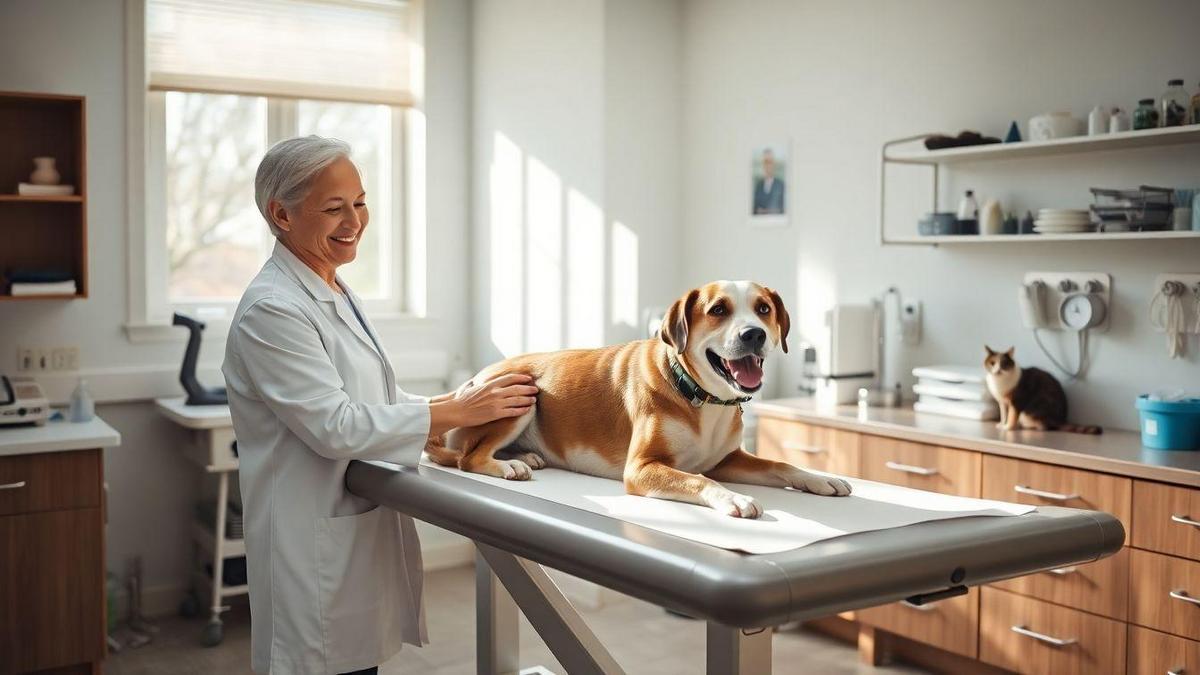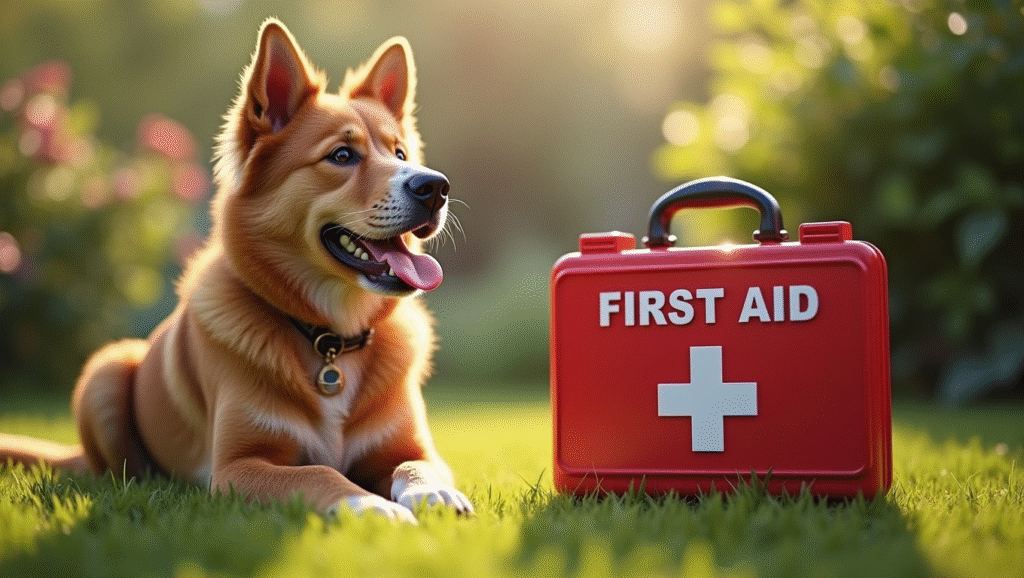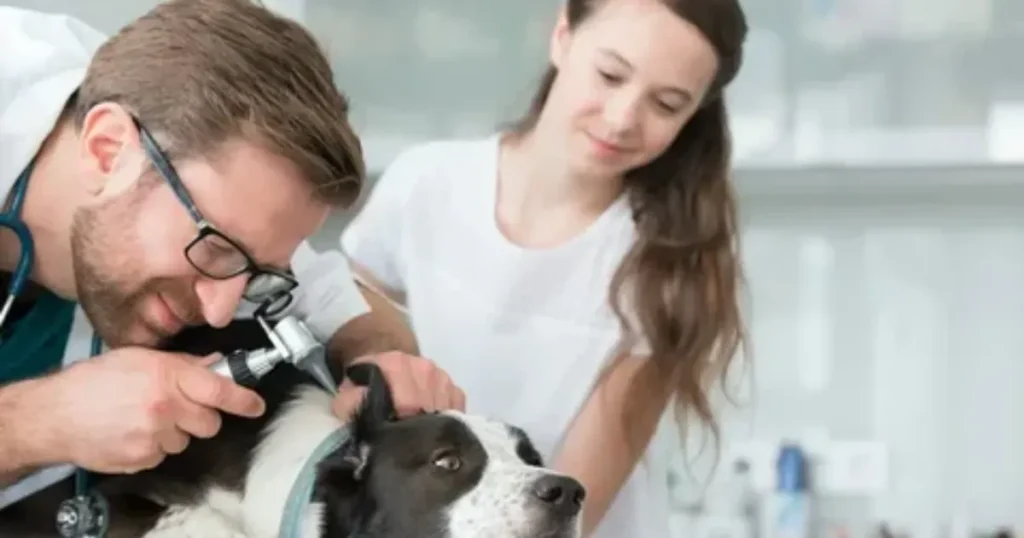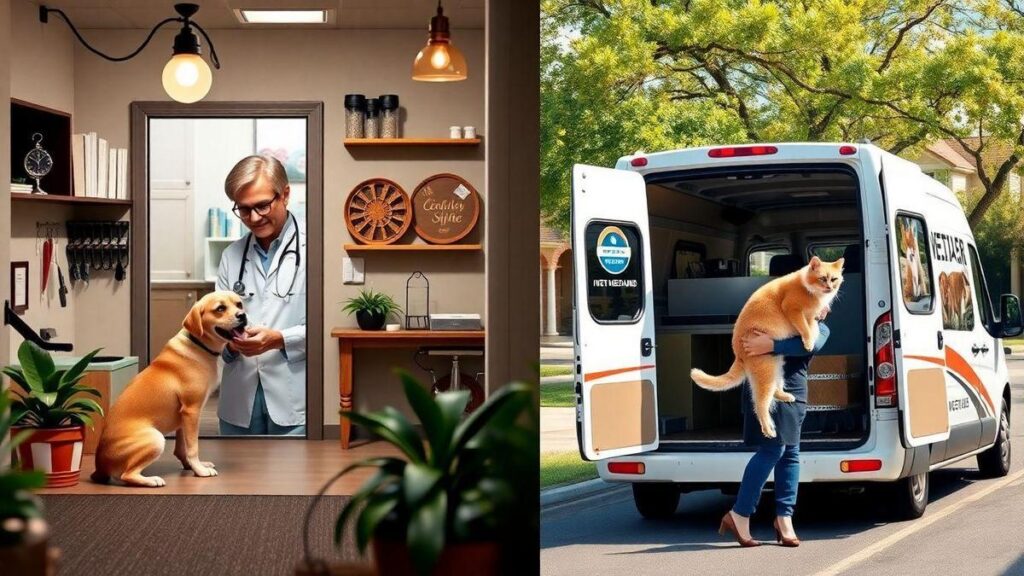Vet Check-Up for Pets in 2025
Vet check-up for pets in 2025 is an essential topic for every pet parent to understand. As our beloved furry companions require varied care, estimating and preparing for these expenses can be daunting.
This guide delves into the essentials of annual veterinary check-ups, breaking down routine vaccines, bloodwork, and parasite prevention. You’ll discover how costs vary between dogs and cats, puppies and seniors, and even across clinic types.
From understanding the impact of age and insurance to finding cost-effective ways to keep your pet healthy, this article has everything to help you navigate 2025’s evolving vet landscape. Embrace the future of pet care and ensure your budget is ready for every wagging tail and purring friend.
Key Takeaways
- Annual vet exams usually range between $100-$300 for dogs and cats.
- Vaccines typically cost about $15-$40 per shot.
- Bloodwork can add $50-$200 to your bill.
- Parasite prevention treatments can cost $20-$50 per month.
- Clinic type and pet age affect prices: older pets and private clinics often cost more.

Summary
Understanding the Vet Check-Up Cost for Pets in 2025
As we step into 2025, the landscape of veterinary care continues to evolve, and with it, the costs associated with keeping your furry friends healthy. Understanding these costs is crucial for any pet owner aiming to provide the best care possible. Let’s delve into the nitty-gritty of vet check-up costs for pets this year.
Breakdown of Routine Vaccines
Vaccines are fundamental in safeguarding your pet’s health, preventing a myriad of diseases. In 2025, the cost for routine vaccines varies slightly depending on the type of pet you have. For dogs, you can expect to pay between $75 to $100 annually for essential vaccines such as rabies, distemper, and parvovirus. Cats, on the other hand, may require vaccines like rabies and feline leukemia, costing around $50 to $85 per year.
| Pet Type | Vaccine Type | Cost Range |
|---|---|---|
| Dogs | Rabies, Distemper | $75 – $100 |
| Cats | Rabies, Leukemia | $50 – $85 |
Importance of Bloodwork in Annual Exams
Bloodwork is more than just a routine procedure; it’s a window into your pet’s overall health. Regular blood tests can detect issues like anemia, infections, and organ dysfunction early on. In 2025, the average cost for bloodwork during an annual exam ranges from $80 to $200. This might seem steep, but the insights gained are invaluable for your pet’s long-term health.
Parasite Prevention Costs
Parasites are not just pesky; they can pose serious health risks to your pets. Preventive measures, including medications and treatments, are critical. Expect to budget around $100 to $150 per year for dogs and $70 to $120 for cats. This covers heartworm prevention, flea and tick control, and intestinal parasite screenings.
Comparing Costs Between Dogs and Cats
Owning a pet comes with financial responsibilities, and these can differ significantly between dogs and cats. Let’s explore these differences in more detail.
Factors Affecting Dog Vet Check-Up Costs
Several factors influence the cost of vet check-ups for dogs. Breed, size, and health conditions play a significant role. Larger breeds often require higher doses of medication and vaccines, increasing costs. Additionally, breeds prone to specific health issues may require more frequent visits and specialized care, impacting your wallet.
Cat-Specific Veterinary Expenses
Cats, while generally less costly than dogs, have their own set of expenses. Routine check-ups for cats usually range from $50 to $150. However, costs can increase if your feline friend needs dental work or treatment for common issues like urinary tract infections.
Differences in Routine Care
Routine care for dogs and cats differs not only in cost but also in the type of care required. Dogs often need more frequent grooming and exercise, while cats may require more attention to litter box hygiene and scratching behavior. These differences can affect overall care costs.
How Pet Age Influences Veterinary Prices 2025
A pet’s age is a significant factor in determining veterinary costs. Puppies, kittens, and senior pets all have unique health needs that influence the price of care.
Cost Variations for Puppies and Kittens
Young animals require a series of vaccinations and frequent check-ups to monitor their growth and development. For puppies, you can anticipate spending between $300 to $500 in their first year, while kittens might cost you $200 to $400. These costs cover vaccinations, spaying/neutering, and initial health screenings.
Senior Pet Health Expenses
As pets age, they may develop chronic conditions requiring ongoing care. Senior dogs and cats often need more frequent bloodwork, dental care, and possibly medication for arthritis or other age-related issues. Expect to spend around $200 to $600 annually on senior pet care.
Age-Related Health Needs
Older pets may face health challenges such as decreased mobility, vision or hearing loss, and cognitive decline. Addressing these needs can be costly but is crucial for maintaining your pet’s quality of life.
Private vs Chain Clinics: Cost Differences
Choosing between a private veterinary clinic and a chain can significantly impact your expenses. Each option has its benefits and drawbacks.
Benefits of Private Veterinary Clinics
Private clinics often provide personalized care and may offer more comprehensive services tailored to your pet’s needs. However, this level of attention usually comes with higher costs. On average, private clinic visits can range from $50 to $150 per visit, not including additional services.
Chain Clinics: Affordable Options
Chain veterinary clinics are typically more budget-friendly, with visits costing between $25 to $75. These clinics often offer basic services and are ideal for routine check-ups and vaccinations. However, they may lack the personalized touch of private clinics.
Choosing the Right Clinic
When deciding between a private or chain clinic, consider your pet’s specific needs and your budget. If your pet requires specialized care, a private clinic might be worth the extra cost. For routine care, a chain clinic could provide the necessary services at a lower price.
Planning Your Pet Care Budget
Budgeting for pet care is essential to avoid unexpected financial strain. A well-planned budget ensures that you can provide the necessary care for your pet throughout the year.
Estimating Annual Vet Expenses
On average, pet owners spend between $200 to $500 annually on veterinary care. This includes routine check-ups, vaccinations, and preventive treatments. Creating a detailed budget can help you manage these costs effectively.
Budgeting for Unexpected Costs
Unexpected health issues can arise, leading to unforeseen expenses. Setting aside an emergency fund of at least $500 to $1,000 can provide peace of mind and ensure you can cover unexpected veterinary bills.
Financial Planning Tips
- Track Expenses: Keep a record of all pet-related expenses to identify areas where you can save.
- Set a Monthly Budget: Allocate a specific amount each month for pet care to avoid financial surprises.
- Consider Savings Accounts: Open a dedicated savings account for pet emergencies.
Exploring Pet Insurance Costs
Pet insurance can be a valuable tool in managing veterinary expenses, but it’s essential to understand how it impacts overall costs. For more detailed insights on insurance options, you might explore Nationwide Pet Insurance Review.
How Insurance Affects Vet Check-Up Costs
Pet insurance typically covers a portion of the costs for routine check-ups, vaccinations, and emergency care. Monthly premiums range from $30 to $50 for dogs and $20 to $40 for cats, depending on the coverage level.
Choosing the Right Insurance Plan
When selecting a pet insurance plan, consider factors such as coverage limits, deductibles, and exclusions. A plan that covers both routine and emergency care offers the most comprehensive protection.
Benefits of Insured Pets
- Financial Security: Insurance helps mitigate the financial burden of unexpected veterinary bills.
- Access to Quality Care: Insured pets can receive the necessary care without owners worrying about costs.
- Peace of Mind: Knowing your pet is covered allows you to focus on their health and well-being.
Trends in Veterinary Care 2025
The veterinary field is constantly evolving, with new technologies and practices shaping the future of pet care.
New Technologies in Animal Health Services
Advancements such as telemedicine and wearable health monitors are changing how we care for our pets. These technologies allow for remote consultations and continuous health monitoring, enhancing the quality of care.
Eco-Friendly Veterinary Practices
Sustainability is becoming a priority in veterinary care. Practices like using eco-friendly products and reducing waste are gaining traction, benefiting both pets and the environment.
Future of Pet Wellness Check
The future of pet wellness checks lies in personalized care plans and preventive measures. These approaches aim to detect health issues early, improving outcomes and reducing long-term costs.
Understanding Vet Appointment Fees
Vet appointment fees can vary widely, depending on the services provided and the clinic type.
Typical Consultation Charges
A standard vet consultation fee ranges from $50 to $100, covering the basic examination and advice. Additional services, such as vaccinations or blood tests, incur extra charges.
Additional Service Fees
Services like X-rays, ultrasounds, and specialized tests can add significantly to your vet bill. Knowing these costs upfront helps you plan accordingly.
Reducing Appointment Costs
- Bundle Services: Schedule multiple services in one visit to save on consultation fees.
- Ask for Discounts: Some clinics offer discounts for multi-pet households or frequent visits.
- Consider Payment Plans: Many clinics provide payment plans for costly procedures.
Managing Animal Medical Expenses
Effectively managing your pet’s medical expenses is key to maintaining their health without breaking the bank.
Cost-Saving Tips for Pet Owners
- Preventive Care: Invest in regular check-ups and vaccinations to prevent costly illnesses.
- Home Care: Learn basic grooming and health checks to reduce vet visits. For more information on grooming, you can check dog grooming service prices.
- Shop Around: Compare prices at different clinics to find the best deals.
Importance of Regular Health Checks
Regular health checks are vital for early detection of health issues, potentially saving you money in the long run. These checks help maintain your pet’s health and prevent serious conditions.
Long-Term Health Savings
Investing in preventive care and regular check-ups can lead to significant savings over your pet’s lifetime. Healthy pets require fewer treatments, reducing overall veterinary costs.
Conclusion
Navigating the vet check-up costs for your beloved pets in 2025 might feel like walking a financial tightrope, but with the right knowledge and preparation, you can ensure your furry friends receive the best care without breaking the bank.
From understanding the nuances of routine vaccines, bloodwork, and parasite prevention to comparing costs between different pet types and clinic options, this guide provides a comprehensive roadmap. Remember, a well-planned budget and pet insurance can be your safety net, allowing you to focus on what truly matters—your pet’s health and happiness.
As veterinary care evolves, staying informed and proactive will help you embrace the future of pet care with confidence. For more insightful articles on pet care and beyond, visit TechHavela.
Frequently Asked Questions
What is the average vet check-up cost for pets in 2025?
The average cost ranges from $50 to $250. It depends on the pet’s type, age, and where you go.
How much do routine vaccines cost in 2025 for dogs and cats?
Routine vaccines usually cost between $20 and $100 per vaccine. Cats often cost less than dogs.
Does age affect my pet’s vet check-up cost?
Yes. Older pets often need more tests and care, which can increase costs.
Are private clinics more expensive than chain clinics?
Usually, private clinics have higher fees. Chain clinics may offer packages or discounts.
What about parasite prevention costs in 2025?
Parasite prevention starts at $30. It can rise to $150 depending on the product and pet size.
**Sidnir Vieira**
Founder of TechHavela
A passionate pet and tech content creator, helping dog owners across the U.S. make smarter decisions for their furry friends.



